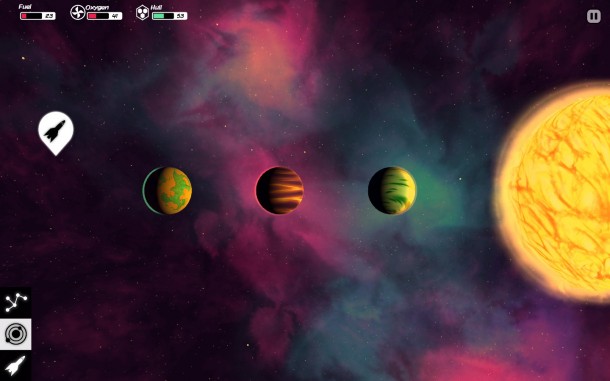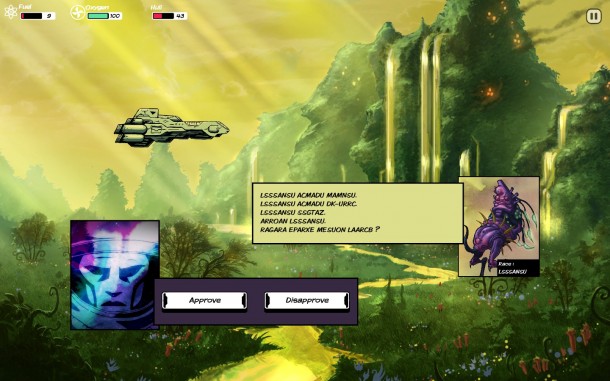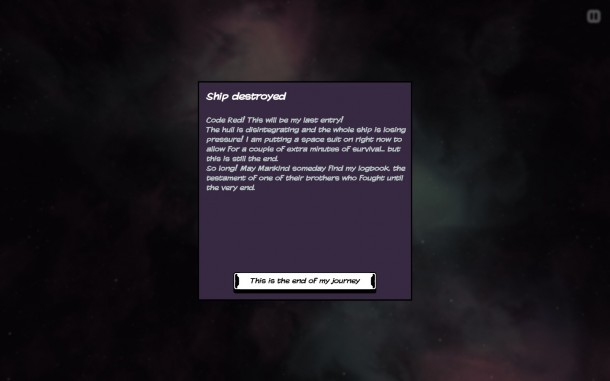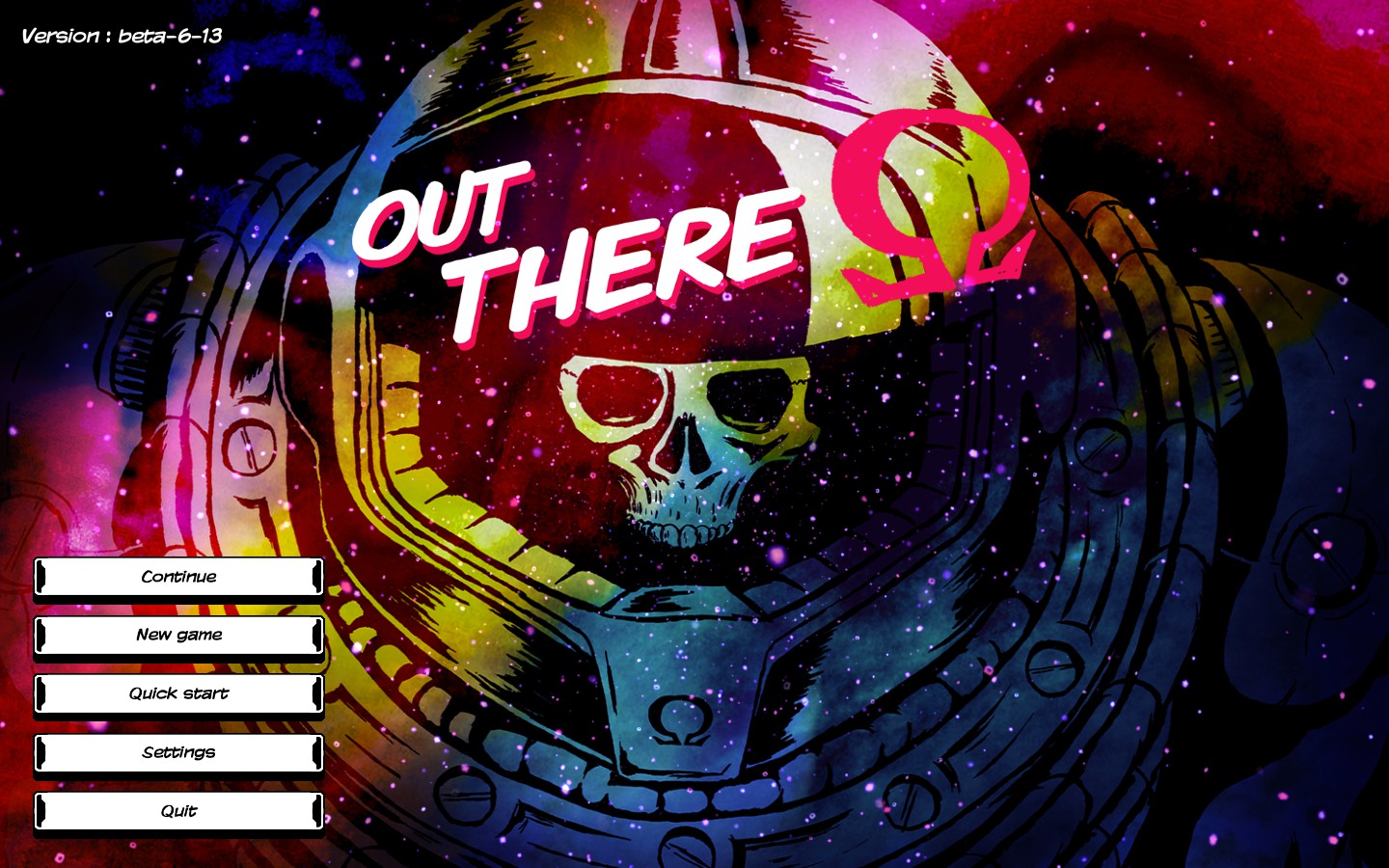When Out There was announced for mobile platforms back in 2013 it seemed like it had the chance to become another of the growing list of indie space games that, for the most part, have done an excellent job at capturing the dangers of science fiction space travel and space combat. Since these sort of games are kind of my jam, I went out of my way to pick it up for iOS as soon as humanly possible.
What I got, though, was not what I was expecting. I had been picturing a less combat focused FTL, and instead what I got was a brutal survival simulator, one that despite being surprisingly simple to wrap my head around wound up being one of the most difficult games I’ve ever played.

Here’s what I know about the game. If you run out of fuel or oxygen, you die. If your ship breaks, you die. You need to visit planets and stars to mine minerals and harvest fuel, and sometimes doing that can kill you. There are multiple endings, and I have no idea what they are because I’ve never made it to them. There’s a dozen or more technologies that you can obtain and build, but you need to re-obtain them every time you play. There are derelict alien ships you can sometimes find. There’s an entire alien language which you come across in random events, and sometimes you get translations for specific words, and when you die you lose those translations. You can write them down, if you want, and eventually you could manually translate every alien word yourself.

It has a simple science fiction setup and then throws you into the deep end of the pool, and you will likely drown. Over and over and over. And it’s awesome.
It was a choose your own adventure rogue-like when it launched on mobile, and almost from the start I remember wishing it had a PC release of some kind. It’s great as a mobile game. There’s no real action, so being interrupted while playing on a bus or something isn’t a huge deal, but still, I wanted to be able to play it from the comfort of my chair, whenever I felt like.
So the Omega Edition, a Steam release, seemed like it could be nice.
And it is nice. There’s some problems, though.
The in-game hints still read like a mobile game. They refer to ‘tapping’ instead of ‘clicking’ or ‘selecting’. Accidentally hitting ‘continue’ from the menu stuck me in a frozen screen that prompted a dialogue box that can through what seemed like a standard interactive tutorial, except there was nothing to interact with, and once I clicked through to the end I couldn’t leave the screen or remove the now-empty dialogue box.
During a random event that read like it was supposed to throw me to a random position on the star map my ship became frozen in place, breaking the camera and distance display. When I managed to click around until I could find a star I could move to, I tried to harvest resources to keep playing, only to have the resource menu simply vanish, and leave me stranded in a solar system of layered, displaced graphics, which ended that particular run.

There’s some issues, is what I’m saying.
But the beauty of Out There is that any playthrough is short, and can be over in a matter of minutes. So being forced to restart the game was barely a thing, in the long run. Chances are I would have died before reaching the end, so it wasn’t nearly as much of a problem as that sort of thing could have been in almost any other game.
I’ve only encountered these issues once, and have been unable to reproduce them at all. And if the updates are anything like the mobile version, I’m sure they’ll soon be fixed. And even if they aren’t, they aren’t nearly enough of a problem to detract from the game as a whole.
I’m sort of enchanted with Out There. It’s difficult in the sort of way something like Dark Souls is difficult, but the controls are simplistic enough that it’s difficult to get frustrated. It’s merciless and relentless in how it tries to kill you, and honestly, if you woke up all alone, in space, on a ship ready to come apart at the seams? You’d probably die just as quickly as you will playing this.
Out There: Omega Edition is challenging, and despite encounters with a few bugs, it’s interesting, fun, intuitive, and quick to pick up and play.
This review is based on a code sent to SideQuesting by the publisher.


No Comments